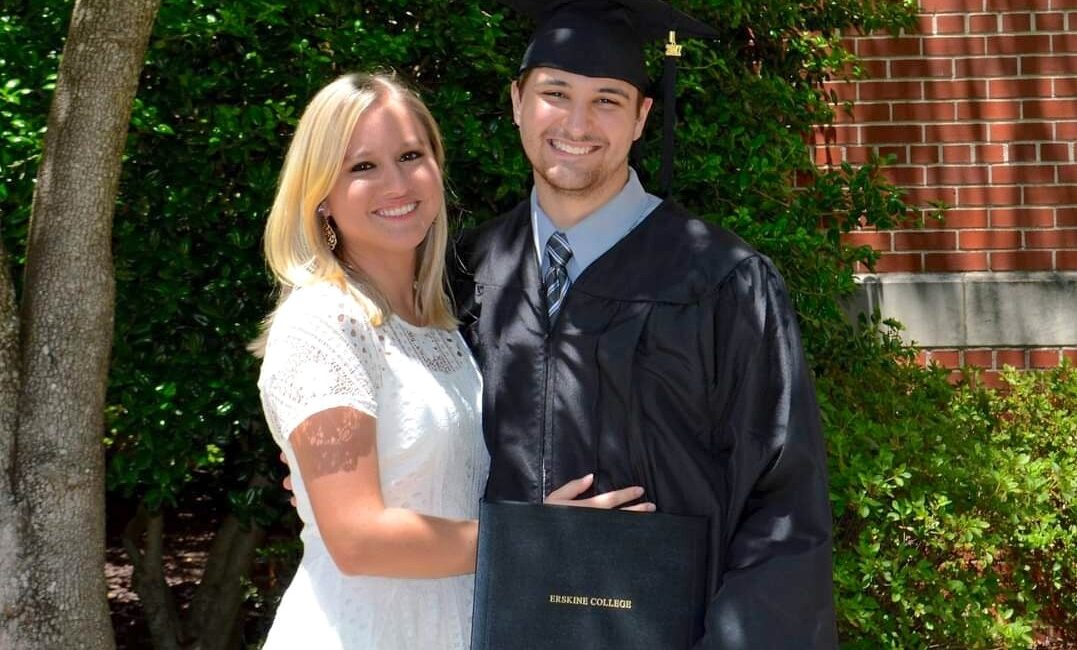
Graduate cites faculty influence, curiosity as factors in his success
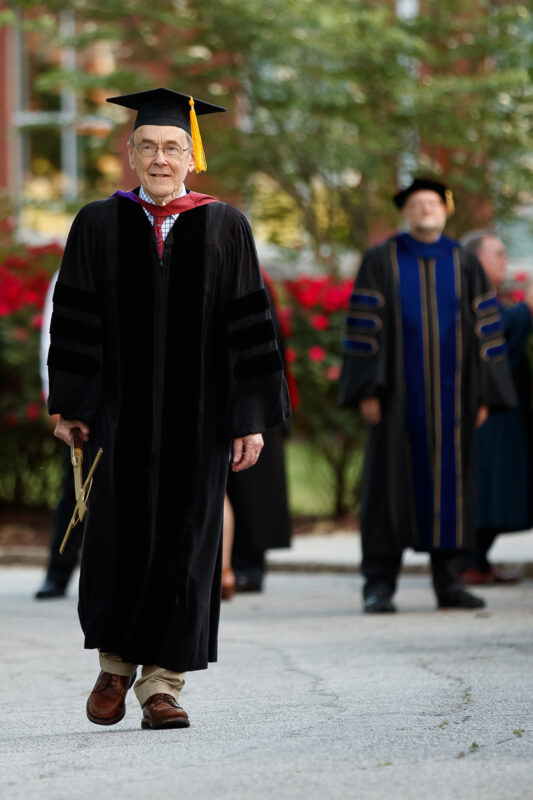
In his first year at Erskine, Justin Glover ’17, who graduated with a triple major, was working on just one major and making good grades. So why take on two more? First, he was encouraged by an Erskine professor to accept more academic challenge. Then, as he added a second major, then a third, his horizons expanded.
Recalling the influence of the late Dr. Howard Thomas, who retired as Young Professor Emeritus of Chemistry and Physics, Glover says, “I started as a physics major. It was Dr. Thomas who converted me to the chemistry major.”
In addition to Thomas’s contagious enthusiasm for chemistry—“He always seemed happy and excited,” Glover recalls—the longtime Erskine professor had a keen eye for assessing students’ progress. “I was getting good grades but wasn’t applying myself,” he says. “I think he saw that and naturally loved to guide students to new heights.”
Willing to be guided, Glover took Thomas’s advice. “I remember sitting in his office, looking in the catalog at the classes I needed to take over the next four years. I wanted to keep the physics and he made it look easy to do chemistry also.”
The related disciplines of chemistry and physics—housed in the same department at Erskine— were important for Glover’s work in graduate school and beyond.
“It’s interesting, because all the way through grad school and [even] now, I have worked on the physics/mechanics of polymer systems,” he says. “I have always been very close to chemistry but not really doing true chemistry.”
It was when he joined a research group offered by Dr. Joel Boyd, then a chemistry professor at Erskine, that Glover began to consider pursuing materials science, which “isn’t one of the most common fields,” he says. It was curiosity that drew him to it. “I realized I didn’t understand what was going on in the materials I was working with and that intrigued me.”
Materials science, Glover says, “can be thought of somewhat as mechanical engineering of materials and can be broken down into three main subject materials—metals, ceramics, and polymers.”
In addition to Thomas and Boyd, professors who made an impact on Glover include Associate Professor of Chemistry and Physics Dr. Tiffany Hayden, Associate Professor of Physics Dr. Ekaterina Michonova, and Assistant Professor of Mathematics Dr. Catherine White.
Hayden “always encouraged us to aim as high as we thought we could achieve,” Glover remembers.
“Justin was more math- and physics-focused in his chemistry classes and so he ‘tolerated’ my classes that are more pre-med-focused. He still did an outstanding job,” Hayden says, and recalls, “He excelled in research with Joel Boyd.”
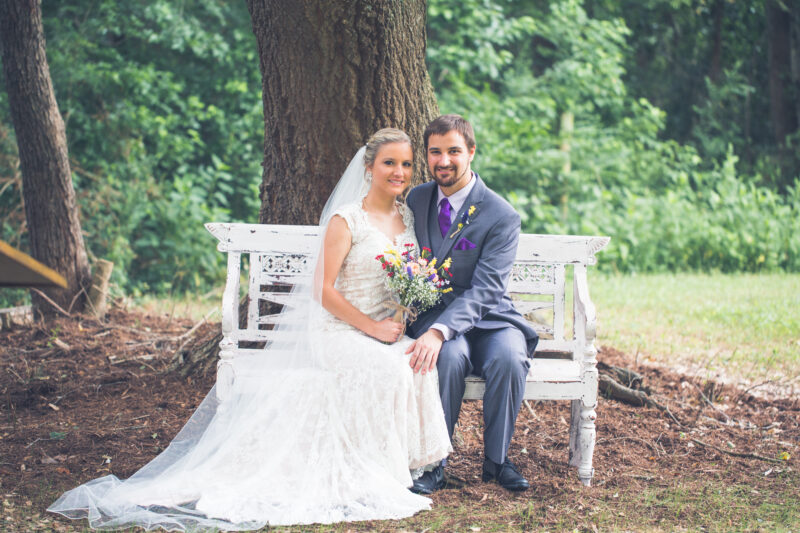
Michonova “covered the required classes for me and a couple of other students to finish out the physics major,” Glover says, when the physics major was being phased out (a physics minor is still offered).
“I remember Justin Glover as a student in several of my physics classes,” Michonova says. “He was smart, knowledgeable, and kind.”
Glover assisted with a physics lab for Michonova and served as a Supplemental Instruction (SI) leader for general physics, with the latter role affecting his future in two ways.
First, “I met my wife, Rachel Lloyd, for the first time in that SI,” he says, and the two later began dating. Second, the experience of being an SI leader made him realize “I didn’t want to go to grad school for teaching.” Instead, he desired a graduate school path which would prepare him to “apply my knowledge to solve problems.”
The third major Glover dove into was mathematics. “I had some extra time and added some extra math classes,” he says. “I like to say I accidentally got a triple major, but I was already looking at engineering in grad school and thought more math would help.”
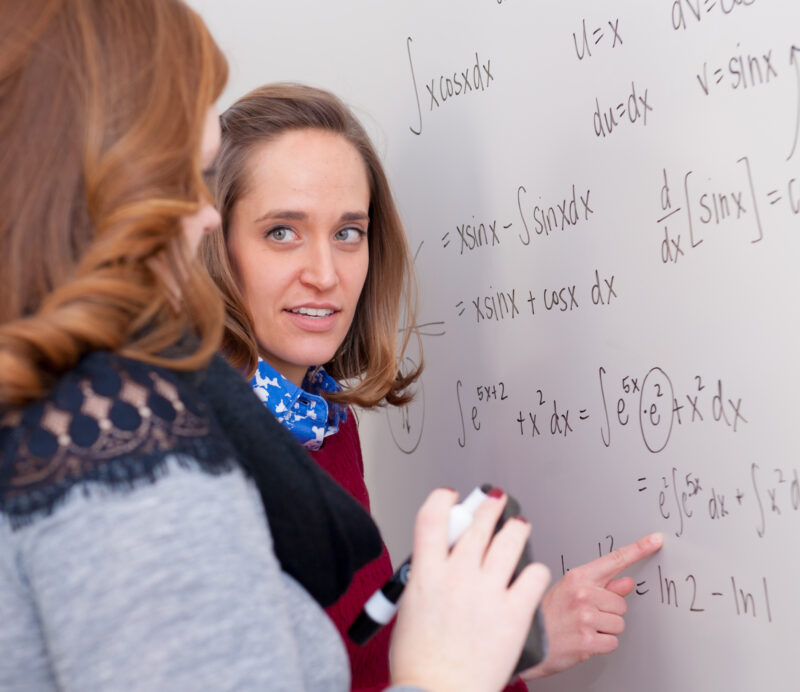
White, who taught most of Glover’s math classes, “was a great professor and often talked about her experience in grad school.” As for the undergraduate’s thoughts about his future back then, “I would say she was the one who brought the idea of grad school down to earth for me,” he says.
“Justin and I often joked about how unmotivated he was as a freshman in calculus,” White says. “He was by no means my worst student, but he definitely wasn’t the best.”
White considers Glover “a prime example of how sometimes you need a little time to find your motivation and purpose in life,” adding, “It’s so encouraging to know how much Justin has achieved since his freshman year, and I’m so glad to have been part of his journey.”
Glover’s journey continued as he married and entered graduate school. “Rachel and I got married June 30, 2018, with Rachel graduating a month or so before that,” he says.
Asked what graduate school was like, Glover offers a short version of the experience. “It was like continuing to go to school for a year and a half and then focusing on getting papers published and eventually defending your work to graduate.”
His advanced study certainly was not a reprise of freshman calculus, in which his lack of motivation became a joke. However, he admits that “the hardest thing about grad school is maintaining motivation.”

Glover lists some obstacles to such motivation with characteristic humor. “The classes are hard, there is always more to do for your research project, everyone is questioning what you are thinking, you feel like an idiot a lot, and you are choosing to be there. It’s like trying to do three majors’ worth of work at the same time,” he says, and then laughs, “I guess I got some experience in that from Erskine.”
On a more serious note, he says, “Getting a taste of research at Erskine helped,” adding, “If I remember right, the senior seminar at Erskine was similar to the grad school version of doing a research project and defending it, but with less rigorous questioning.”
Today, having completed his Ph.D. in Materials Science and Engineering at the University of Kentucky, Glover works in the materials science field and uses knowledge he gained in all three undergraduate majors. Employed by “a specialty polymer and chemical company that produces a portfolio of high-performance polymers,” he works mostly with polymers.
“Imagining a world that doesn’t have polymers makes me realize their importance,” Glover says. “Walls wouldn’t have paint, I couldn’t be typing right now, cars would have to be made of only wood and metal.”
In graduate school, Glover “worked on very soft silicone rubber and [its] mechanics during contact, adhesion, and friction—you could think of it as the sticky adhesive on the back of tape.” He says that since he is dealing with polymers now, “a lot of the physics carries over” into his work.
Glover has retained from his undergraduate years a desire to use his knowledge to solve problems. The problem-solving and critical thinking skills he developed in the graduate school environment “are applicable to every project I have come across,” he says. He enjoys materials science because it is “applicable to tangible objects” and because the physics of these objects “is rather complicated.”
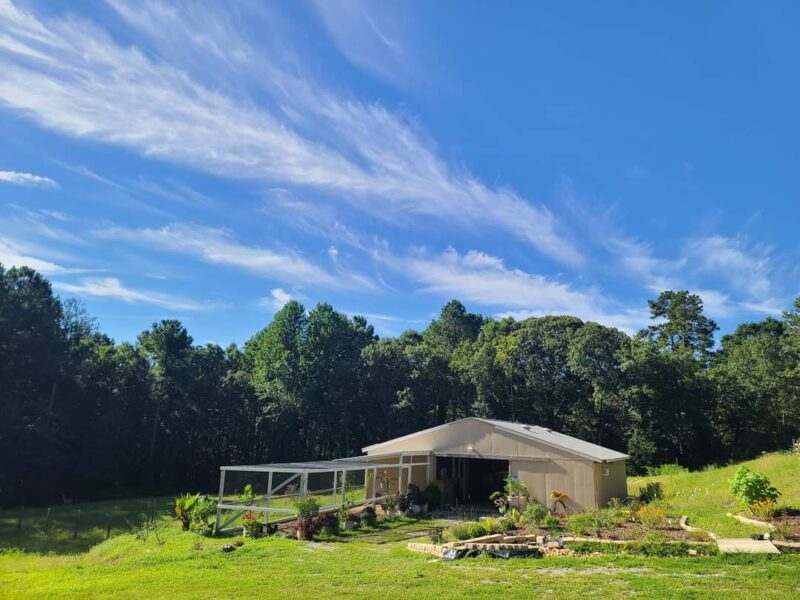
Asked about environmental concerns in his field, Glover calls that topic “a big subject in the industry” and offers an example from his own workplace.
“Just the other day, I was having a conversation about a material that was in development for an application related to electric cars,” he says. “It performed great in the application, but had a poor greenhouse gas emissions to production ratio. It likely will not be utilized due to the environmental concerns.”
Glover notes that decisions based on environmental factors “happen all the time” and says that in his industry, “there is constant work to utilize recycled content in materials.”
Now living on the northeast side of Atlanta with his wife Rachel Lloyd Glover ’18, a summa cum laude graduate in biology, Glover reports, “We are doing great. We bought a house with a few acres and Rachel is working on turning it into a hobby farm.”
Maybe we’ll hear more about that hobby farm soon.
Shown at top are Rachel Lloyd and Jason Glover at his 2017 Erskine commencement.
